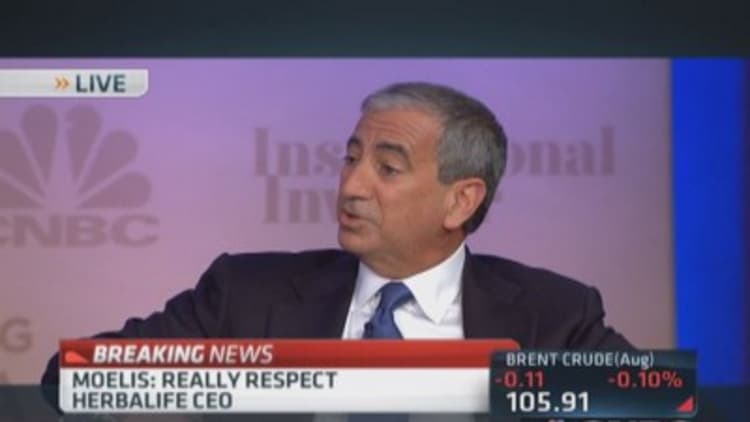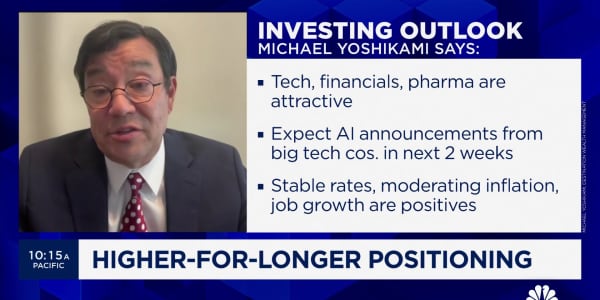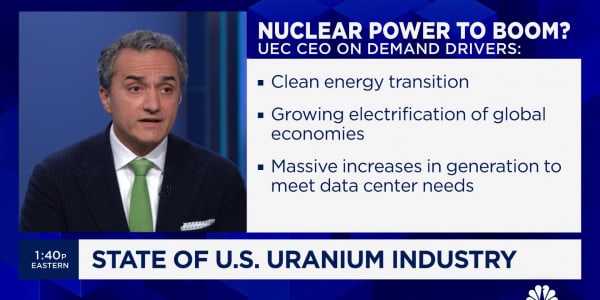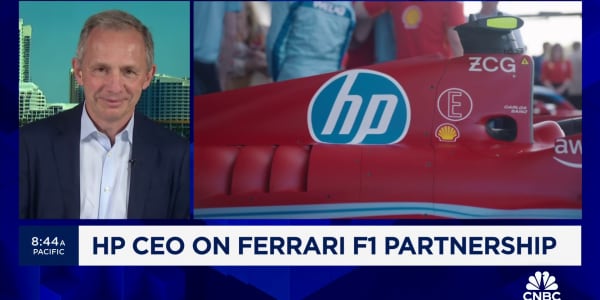Hedge funds that bet on corporate shake-ups have been the industry's darlings.
The average "event driven" fund clocked in gains virtually every month for the past year and investors poured in tens of billions of dollars into money managers who promised continued profits. A subset, so-called activist managers who actively push for change versus just predict it—like Bill Ackman of Pershing Square Capital Management and Nelson Peltz of Trian Fund Management—produced large gains for investors by practicing their signature public battles with management teams.
Then came July, when U.S. equity markets gave back some of their gains. The average event driven manager lost 0.85 percent for the month, the worst performing hedge fund strategy measured by data provider Preqin. It was also the first monthly loss for event driven strategies since August 2013.
Dan Loeb's Third Point Offshore fund fell 1.2 percent in July, likely on losses in public portfolio holdings like Sotheby's and AIG. John Paulson's Paulson Advantage lost 4.49 percent for the month in part because of positions in companies that had just reorganized and the health-care industry, according to a letter to investors. And Mick McGuire's Marcato International dropped 2.4 percent because of losses in public positions in NCR Corp. and Life Time Fitness, according to a person familiar with the situation.
But investors are far from panicked and continue to believe in a strong environment for profiting off company mergers, reorganizations and other moves.
Brand name event driven hedge fund performance
| Fund | July performance (%) | YTD performance (%) |
|---|---|---|
| Pershing Square Intl | 0.6 | 26.11 |
| York Investment* | -0.25 | 11.5 |
| Davidson Kempner Intl | 0.23 | 6.43 |
| Paulson International | -1.3 | 5.22 |
| Third Point Offshore | -1.2 | 4.7 |
| ECF Value | -4.78 | 0.99 |
| Marcato International | -2.4 | 0.0 |
| Owl Creek Overseas | -1.1 | -0.98 |
| Paulson Advantage | -4.49 | -3.36 |
| *Through July 25 |
Source: Source: CNBC.com reporting
Read MoreHedge funds love...Carl Icahn and Bill Ackman?
"We're not worried, we're still confident," said Tony Lissuzzo, head of hedge fund research at Northern Trust Alternatives.
"Our outlook for event-driven investing and activism is constructive," added Michael Weinberg, chief investment strategist at hedge fund investor Protege Partners.
"The July losses were largely attributed to market exposure and will even out over time. We're not too concerned about it," said Bryan Schneider of EnTrust Capital, which also places money with hedge funds on behalf of clients.
Investors added an estimated $2.2 billion in July to event-driven hedge funds, making its haul for the year $37.2 billion, the second most popular strategy of 2014 behind plain stock funds, according to investment fund data tracker eVestment. Activist specific funds received an additional estimated $195 million, lifting 2014 inflows to more than $13 billion.
One reason for the July losses is from a general decline in the stock of smaller companies. Many event-driven managers have a bias toward smaller companies, which fell more than others last month. The Russell 2000 Index fell 7.12 percent in July, compared with a drop of 2.16 percent for the .
Event driven hedge fund returns
| Year | Annual return |
|---|---|
| 2008 | -21.08% |
| 2009 | 26.89% |
| 2010 | 13.16% |
| 2011 | -4.75% |
| 2012 | 10.38% |
| 2013 | 14.00% |
| 2014 | 5.13% |
Source: Source: Absolute Return Event Driven Index (HedgeFund Intelligence)
Hedge fund investors cite several reasons for their continued optimism. They include relatively easy borrowing thanks to low interest rates, healthy corporate balance sheets and company management teams that are proactive about deals given relatively low organic growth in their businesses.
"The presence of these factors creates a recipe for what is expected to be increased corporate activity for the foreseeable future in areas where these managers can take advantage of, including notable areas such as M&A, business unit divestitures and capital allocation initiatives," Entrust's Schneider said.
Read MoreRupert Murdoch and Masayoshi Son triggered M&A shockwave
"Event driven equity strategies continue to face tailwinds," Anthony Lawler, portfolio manager with GAM Alternative Investment Solutions, said in a July commentary. "The volume of merger deals, refinancings and activist activity remains robust and we expect this to continue."
The prominence of activist and other managers has also made their targets more willing to listen.
"Company management is increasingly likely to be held accountable by and to shareholders," Protege's Weinberg said. "Companies are likely to continue to use cash on their balance sheet to achieve what are often activist goals, such as share repurchases and dividends. In our view acquisitions are also likely to persist, which bodes well for event driven investors."
"We're still in the early to mid innings of this. We haven't seen any sort of exhaustion of ideas and deals," Lissuzzo added.

Read MoreAre you rich enough to be a hedge fund investor?
Some caution was urged.
"Five and a half years into a bull market, and off the market lows, one might argue that share repurchases and acquisitions are not necessarily optimal from a shareholder value creation perspective," Weinberg said.
Weinberg added that some recent corporate acquisitions were reminiscent of those that occurred before the 2008 financial crisis. "Private equity firms are once again acquiring what one may argue are weak businesses with bad prospects at full valuations, and with substantial leverage," he said.
Weinberg also said that regulatory pressure against corporate "inversions," where companies buy another one overseas to gain a more favorable tax treatment, could take away what had been a profitable strategy for some investors.
Lawler also said stock-focused event driven managers were a better bet than bond-oriented ones. He said price levels of bonds were relatively high and could suffer if more investors reduce their high-yield holdings. "Even though our base case is for interest rates to stay low for longer, we are not buying high yield credit ... at current levels," Lawler wrote.
Read MoreThe big money still loves hedge funds
Of course, event-driven investors themselves are bullish.
"The good news is that the opportunities for shareholder activism are only limited to the extent all corporations optimize their business models, operations, and capital allocation and become efficiently priced by the markets," Ackman wrote in his latest letter to investors. "We believe that corporate inefficiency and security mispricing will continue for the foreseeable future and present a continued rich opportunity set for Pershing Square."
—By CNBC's Lawrence Delevingne.






